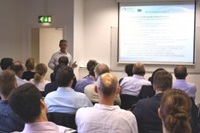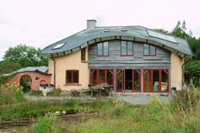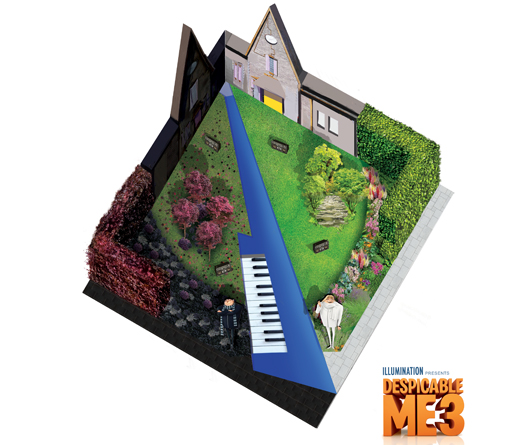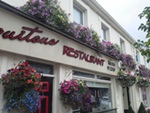
The NEES Cork EUSEW Seminar (25.06.13) demonstrated that building your house out of natural materials, like straw and wood, can be very positive for the environment. The European Sustainable Energy Week seminar was organised by the NEES (Natural Energy Efficiency and Sustainability) Project led by Cork Centre for Architectural Education (CCAE) took place on June 25th.
Delegates, including architects, green entrepreneurs and environmentalists, in a packed classroom at the Centre listed to several presentation that made the case for the use of building and insulation materials made of renewable and recycled products, and for services based on natural processes, as a way of reducing energy use of the life-cycle of the buildings, combatting global warming and minimise environmental harm.
The Seminar was chaired by Prof. Kevin McCartney, Director of CCAE, who welcomed delegates and explained the aims of the Seminar.
Mink McInerny, an architect and researcher , presented research that she has carried out into the comparative embedded energy of a Passive House built with non-renewable materials (such as chemical insulation and man-made cladding materials) and one made with materials of natural or recycled origin. This mainly looked at “embedded energy” as well as the normal “energy in use” that the public is aware of. Embedded energy counts for around 40% of the total use of energy of a building.

Riedmuller’s cob house The Hollies
The two houses, achieve a similar energy efficiency “ in use”, but in terms of embedded energy the house built with natural and recycled materials used around 1/3 of the energy embedded in a non-renewable one. In terms of Global Warming Potential (GWP) the natural house showed a negative GWP, that was equivalent to the positive GWP of the non-renewable one. In terms of weight ( a simple measure of environmental impact) the renewable house had a 1/3 of the impact that the non-renewable one. Minka’s cutting analysis demonstrated the significant environmental advantages of construction an retrofit based on renewable and recycled materials and natural processes .
Jose Ospina, Project Manager for NEES explained the current state of Progress on the NEES (natural Energy Efficiency and Sustainability) Project, funded by the EU’s Northern Periphery Programme . NEES has developed a “triple bottom line” criteria for assessing Best Practices in the use of natural and recycled materials that originate in or are normally found in the Region. On the basis of this criteria, a Panel of Experts from the countries involved have to date selected 14 Best Practices in products and services that exemplify the NEES approach. A further Call for potential Best Practices will take place later this year.
NEES is developing 6 Pilot Project in different regions, including Greenland, , Sweden and Ireland (Cork, Claremorris and the Isle of Aran), that will demonstrate this approach and demonstrate some of the Best Practices identified. NEES is also developing a vocational training programme, for professionals and beginners, that will facilitate training and application of this “natural “ approach. A series of workshop[s and events will be organised during the remaining 10 months of the Project, culminating with a European Conference in Brussels in April 2014.
Stuart Thompson, representing the University of Ulster, a Partner in NEES, gave details of a verbal presentation made by the Project to the UK’s All Party Parliamentary Group on Sustainable Constriction . Kevin Gartland and Olra McKeever from CCAE described a proposed Pilot Project in Coyne, Co. Cork, that will demonstrate many of the Best Practices and also be a basis for the training of future architects and this approach. Two selected Best Practice representatives s, John Egan from Eco Cell, an NSAI accredited recycled paper insulation manufacturer and installer, and Thomas Riedmuller, from The Hollies Centre for Sustainability, explained their pioneering enterprises, that show how the NEES approach has been put into practices in County Cork.
Participants in the Seminar were also asked to voice their views on the potential of NEES products and Services and an invitation was issued for interested parties to become part of the NEES Cork and Kerry Focus Group, that will be working with Partners over the coming months in further identifying and promoting natural and recycled materials and service,
Three Little Pigs will have to think again when choosing building materials…!




